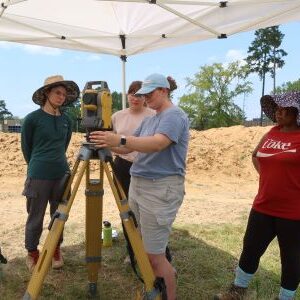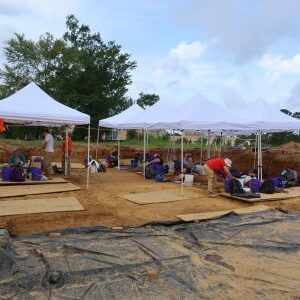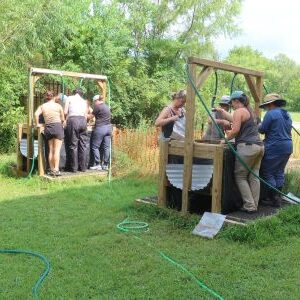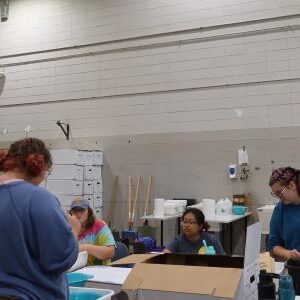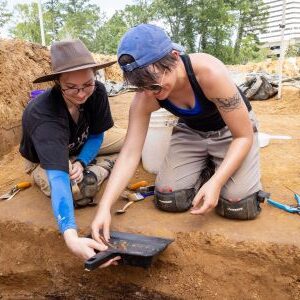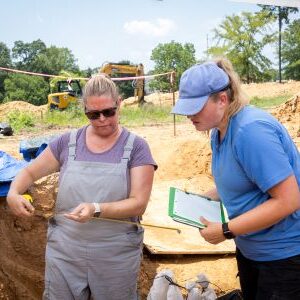2025 US (MS): Bioarchaeology at Asylum Hill
Closed
Jun 29-Aug 2, 2025
Archaeology, Bioarchaeology
Dr. Jennifer Mack
$4,350 or $2,790 (see below)
April 4, 2025
Apr 5, 2025 at 12:00pm Pacific Time
8 Semester Credits
Please read before applying
This program is focused on the exhumation of individuals who perished at the Mississippi State Lunatic Asylum and are buried in its cemetery (ca. 1855-1935). This program takes place where family & community members are alive and have deep and intensive interest in the exhumation work. This program is emotionally and physically demanding, requiring the utmost respect for the dead and the living. Students should be aware of the challenges and should attend only if they feel this type of experience is for them. This program DOES NOT offer onsite professional grief counseling.
This program requires Health & Criminal background screening. Admitted students MUST begin the process by mid-April as the submission and review of such background screenings is a lengthy, multi-step process. Students who have not begun the process by May 5, 2025 will forfeit their slots at the field school and will not receive a refund of tuition. All materials and steps for background screening MUST be submitted and completed by June 9, 2025.
this program has an application deadline
Application deadline is Feburary 7, 2025. Please apply by this date to be considered for this field school.
A lower tuition of $2,790 is available for students who do not require housing and meals. These students will be responsible for arranging their own transportation and arriving on site on time each morning.
Program is Full
OVERVIEW
The Mississippi State Asylum (originally called the Mississippi State Lunatic Asylum) opened in 1855 in Jackson, the capital city. This institution operated from its original buildings until 1935, when it moved to a new location. During its 80 years of operation, the institution housed patients from all areas of Mississippi, and many came with physical maladies in addition to mental conditions. Approximately one third of the 30,000 patients who were admitted to the institution died at the Asylum. More than 4,000 were buried in the cemetery on site, now known as the Asylum Hill Cemetery. Wooden grave markers were used, but they have long-since deteriorated and no longer exist.
The former Asylum lands are currently home to the ever-growing University of Mississippi Medical Center (opened in 1955). To make way for an expansion of vital healthcare services and structures, the Asylum Hill Cemetery is now being excavated. This presents a research opportunity at a scale rarely seen in the U.S. (see this recent article). This field school is part of the larger research and relocation effort.
Students of this program focus on bioarchaeological methods, including burial excavation, human osteology, and mortuary artifact identification. Students also learn basic archaeological methods, such as mapping, soil sample collection, and creation of field sketches. This program’s scale and scope benefits students who seek careers in both Cultural Resource Management and academia.
Previous coursework in human osteology is not required but will be beneficial to participants.
instructors
All field school directors are experts in their field and passionate about their work. To discuss the suitability of this program for your career goals – whether within or outside academia – you are invited to contact the directors directly. For a broader discussion which CFS program to choose, you are welcome to contact our staff directly – you can do that through our “Contact Us” page.
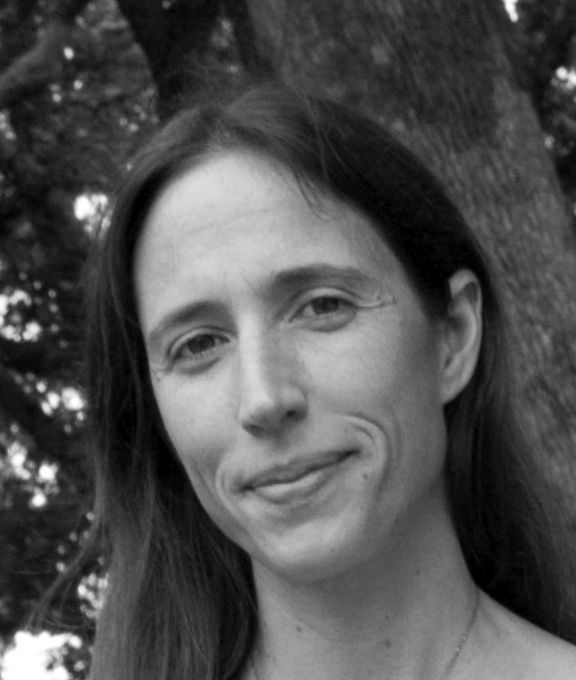
Dr. Jennifer Mack
University of Mississippi Medical Center
Testimonials
This is such an awesome opportunity just working on this project. I learned so much in the five weeks we were here.
From student evaluation form, 2024
The experience was incredibly informative, and it was amazing to be able to participate in a project that is not only important to the descendants of these individuals but the community at large.
From student evaluation form, 2024
I would recommend this program to a friend both in and out of archaeology because of how interesting and intricate this project is from start to finish and the wonderful people in charge of making this project run efficiently.
From student evaluation form, 2024
Dr Mack is a kind and fun teacher who was really helpful, and the field work itself was fun and rewarding.
From student evaluation form, 2023

From student evaluation form, 2023

From student evaluation form, 2023
student fees (tuition)
what is covered
-
DEPOSIT IS PART OF TOTAL TUITION COST
-
Costs of Instruction
-
Room & Partial Board
-
Cost of Academic Credit Units
read before you pay
- Application: You must apply online for this program – application is free
- Deposit: A $300 nonrefundable deposit (part of the total tuition cost) is required to secure a space in the program
- Credit Card Fee: Payments with credits cards incur 2.5% processing fee
- Late Fee: A $100 Late Fee will be added to the program costs if tuition is not paid in full by payment deadline
- Cancelation Policy: Carefully read our Cancelation Policy before committing to attend our programs
- Trip cancellation Insurance: Trip cancellation insurance is not provided by CFS. Such policies have changed due to Covid 19. If you wish to purchase an insurance policy that covers pandemic contingencies, explore Cancel for Any Reason (CFAR) plans. Insuremytrip or Travel Guard are possible websites where you may explore different insurance policies
Accommodations
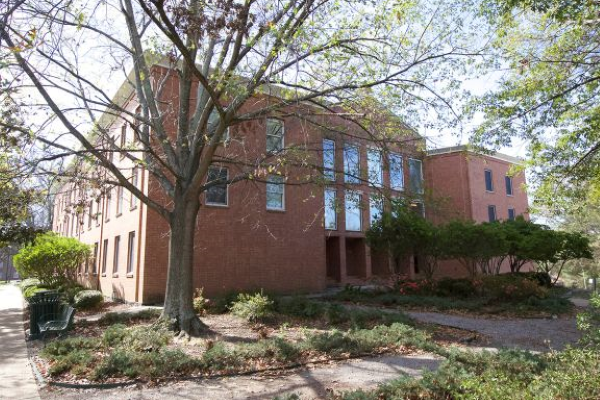
Student accommodations will be single-occupancy rooms in a dormitory at Millsaps College. Students who already live locally or who opt to provide their own accommodations will pay a reduced tuition rate.
Participants staying in the Millsaps dormitories will be expected to bring their own bed linens, blankets, pillows, towels, and toiletries sufficient for a 5-week stay. Bathroom tissue is provided. Padded mattress covers were recommended by participants of the 2023 field school.
diet

Continental breakfast will be available seven days a week in the Millsaps dormitory kitchen for dorm-stay students only. Lunch will be provided on site Monday through Friday. A buffet will allow students to make their own sandwiches and will also include fruits, vegetables, chips, snacks, and water. The cost of site lunches is included in the field school fees for all students. Dinners will be self-catered. There is a small kitchen in the Millsaps dormitory as well as nearby restaurants and shops.
Weekend lunches are not included in student fees. On excursion days (optional), the class will stop at a restaurant for the midday meal, but students will be responsible for their own expense.
Students who need accommodation for dietary restrictions must inform the project director in advance of arrival in Jackson.
travel information
We suggest you hold purchasing airline tickets until six (6) weeks before the program begins. Natural disasters, political changes, weather conditions & a range of other factors may require the cancelation this field school. CFS typically makes a final Go/No Go decision about six weeks before the field school begins. To protect students from potential financial loss, we urge students to purchase airline tickets only six weeks prior to program beginning.
Students arriving by air should book flights arriving at the Jackson-Medgar Wiley Evers International Airport (JAN) prior to 6:00 pm Central on June 29, 2025. Meeting point is by the Lost Luggage booth at the arrival area.
You may be asked to wait one or two hours for other students to arrive for a single pick-up. Be advised that there are few amenities at the airport.
visa information

This is a domestic program. No visa is required for US Citizens.
Meeting Point
| Date | Time | Location |
|---|---|---|
| June 29, 2025 | 6:00pm | Jackson-Medgar Wiley Evers International Airport, Lost Luggage booth at the arrival area |
Safety
Our primary concern is with education. Traveling and conducting field work involves risk. Students interested in participating in our programs must weigh whether the potential risk is worth the value of education provided. While risk is inherent in everything we do, we do not take risk lightly. We engage in intensive review of each field school location prior to approval. Once a program is accepted, we review and monitor each program annually to make sure it complies with all our standards and policies, including student safety.
Students attending our international programs are covered by a comprehensive Health Insurance policy that includes physical illness or injury, mental or chronic conditions. There are no deductible and 100% of costs are covered up to $250,000. In addition, we provide Political & Natural Disaster Evacuation policy, which allow us to remove students from program location if conditions change.
Students attending our domestic programs (within the US) must have their own health insurance and provide proof upon enrollment. Program directors are familiar with local authorities and if in need of evacuation, local emergency services and/or law enforcement will be notified and activated.
We have an explicit and robust harassments & discriminations policies. If students feel they cannot discuss personal safety issues with program staff, they are welcome to call the CFS emergency hotline and talk directly with CFS staff members.
Call (+1 562 584-0761) or email (info@fieldsciences.org) if you have questions about the safety of any program.

